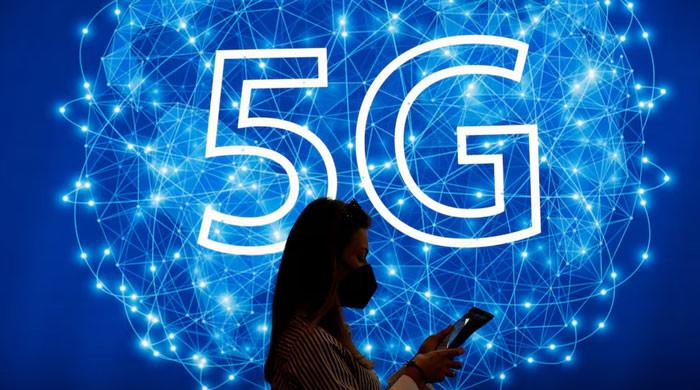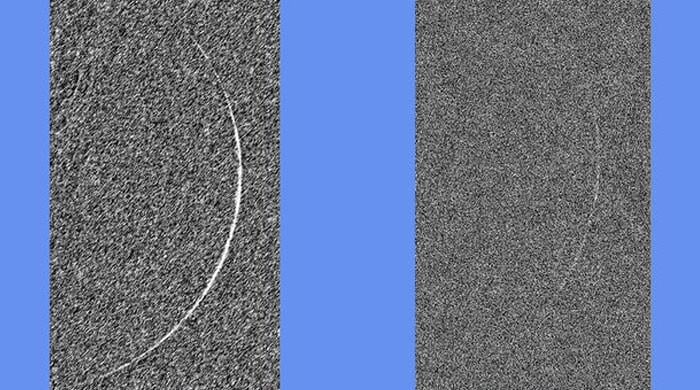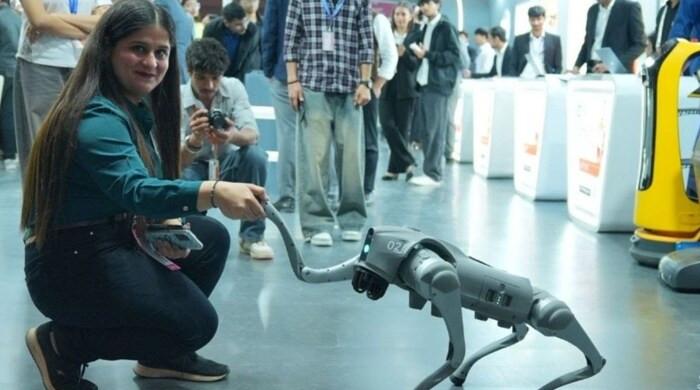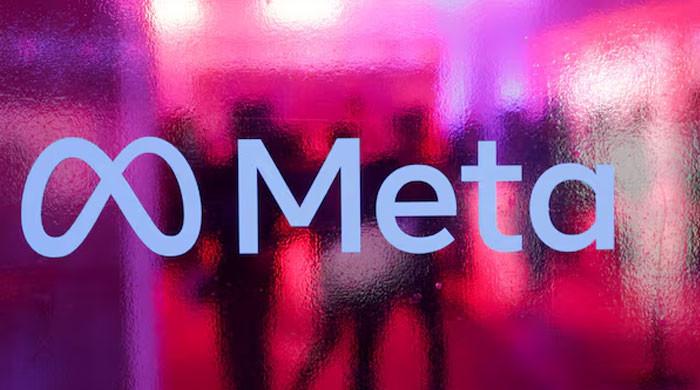Pakistani students' revolutionary 'GeoGemma' project wins top Google award
Pakistani duo's project was born from ambition to make complex geospatial data and satellite imagery easily accessible
June 30, 2025
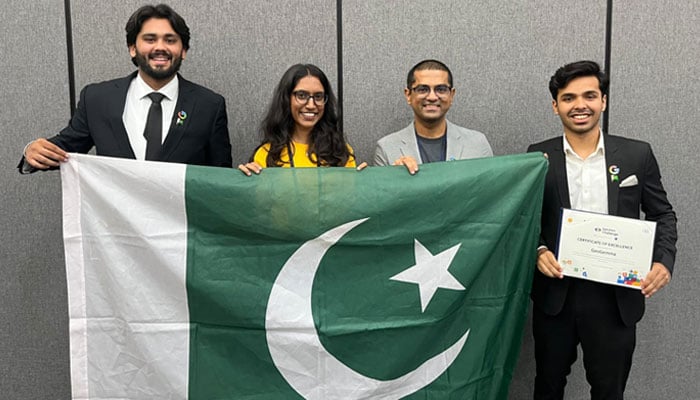
Two ambitious students from Islamabad's Institute of Space Technology, Ahmed Iqbal and Hanzila Bin Younas, have transformed their final-year academic requirement into an award-winning innovation.
Their project, GeoGemma — an open-source Large Language Model (LLM) integrated with the powerful Google Earth Engine — recently secured the 'Best AI Use Case' award at the prestigious Asia-Pacific (APAC) Solution Challenge, jointly organised by Google and the Asian Development Bank in Manila.
The pair's innovative project, GeoGemma, is an open-source Geo Large Language Model (GeoLLM) for planetary scale satellite imagery and analysis.
This project was born from the duo's ambition to make complex geospatial data and satellite imagery easily accessible, which also caught the attention of Google DeepMind, a subsidiary of Alphabet focused on AI development.
They won a $10,000 grant that skyrocketed the development of the GeoGemma project.
Speaking to Geo.tv from Manila, Philippines, on Monday, Iqbal said the ambition to turn his final year project into something meaningful was born after observing the meteoritic rise of generative AI and ChatGPT in the past three years.
"Initially, with both Hanzila and I having a background in Space Science, and our specialisation in Geography Information Systems (GIS) and Remote Sensing, which is based on Satellite Imaging, it was very apparent, it was very straightforward for us that we need to find cross-sections in Geospatial Artificial Intelligence or Geo AI," said Iqbal.
"This is a relatively new field and we have seen very few cross-sections in geospatial technologies or GIS and text-based Large Language Models (LLM) like ChatGPT."
Iqbal, the team lead for GeoGemma, emphasised that one product that "every person uses in this particular field" is the Google Earth Engine.
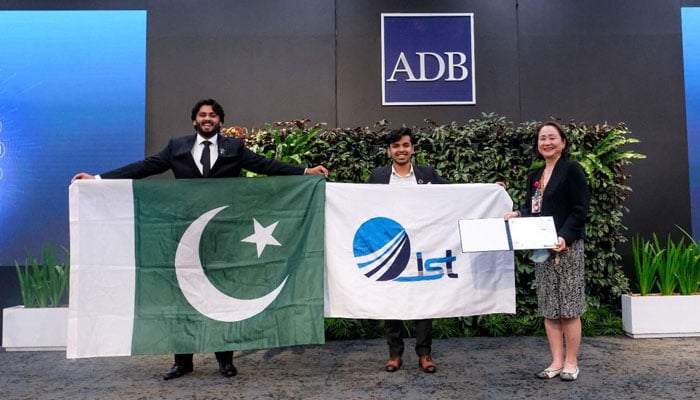
"We may have seen the roofs of our houses on Google Earth and whatnot, but Google Earth Engine is a step ahead from that, it is a bigger brother, so to speak," Iqbal said.
"There you find more than 80 petabytes worth of Satellite Imaging and its related and associated data sets. So, we thought okay, Google Earth Engine is an open source platform, why not fuse it with a free-to-use, ChatGPT-like model?" the young innovator added.
While he emphasised the vast uses of Google Earth Engine, Iqbal also highlighted that its utility has traditionally been limited to users with significant programming and coding expertise.
Iqbal and Younas sought to eliminate this barrier, envisioning a tool that would allow anyone to analyse this vast data by simply writing natural language prompts.
A pivotal summer
A pivotal period in GeoGemma's development occurred during the summer of 2024 at the National Center of GIS and Space Application (NCGSA).
Iqbal stressed the importance of this internship: "We were doing an internship there, and they gave us a free hand to experiment on this particular research that eventually became GeoGemma."
He also extended gratitude to key figures at NCGSA, saying: "They gave us pro versions of ChatGPT tools and Cloud Sonnet tools in the early pre-ideation stage."
It was during this NCGSA internship that the team began to actively seek research grants. Iqbal reflected on the mindset that led them to Google DeepMind: "Why not have our project sponsored by one of the biggest tech companies in the world? It could be Google, it could be Amazon, it could be Meta, it could be NVIDIA."
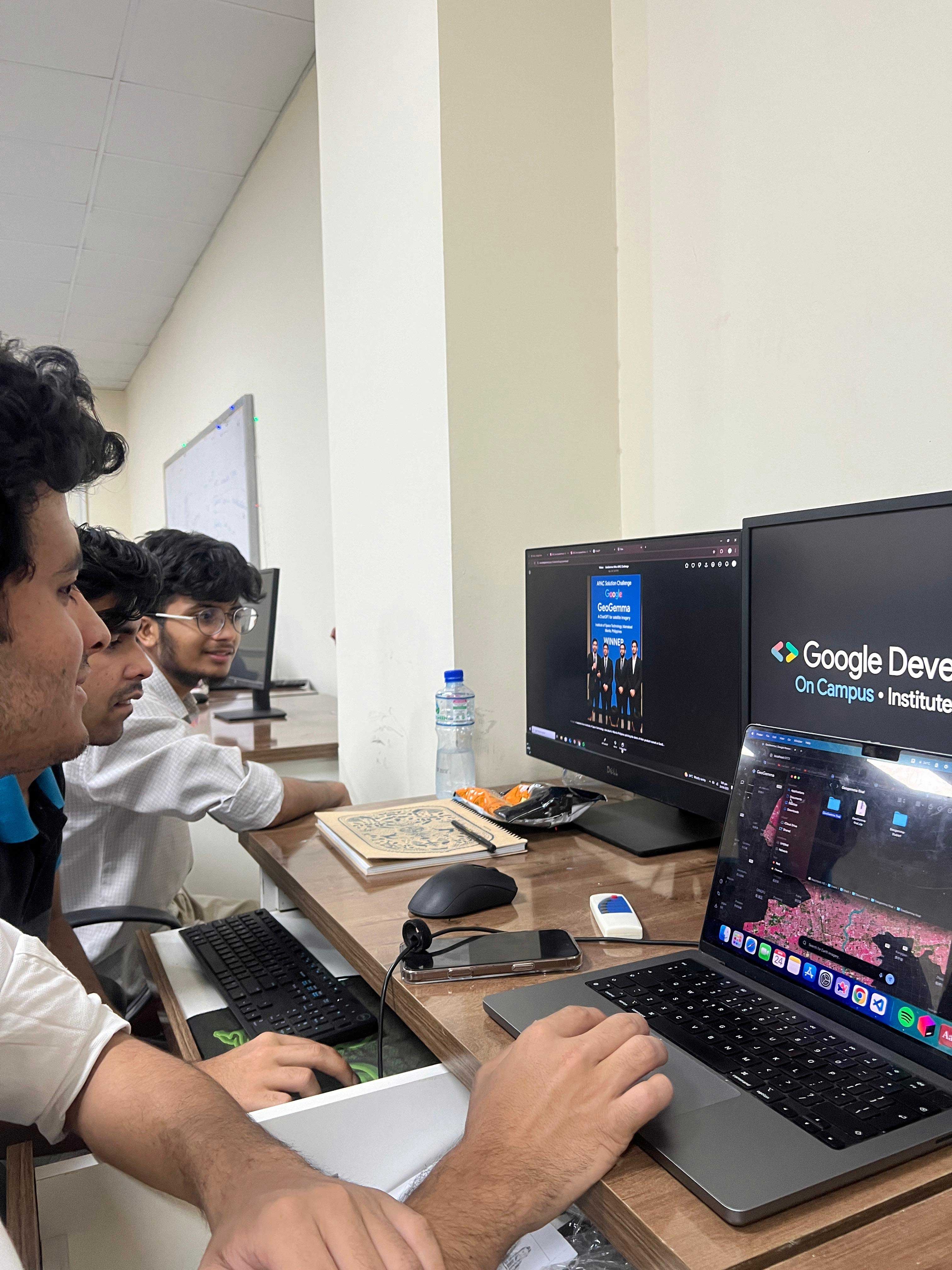
He lamented a common oversight in academic circles, saying: "Somehow, within our academia circles or our students, this thought doesn't come to us; it isn't ingrained within our workflows, as it were. If you have a fantastic idea, why not just openly say it to these companies?
"You would never know how many doors open if you don't knock."
Around June 2024, Iqbal discovered a research grant opportunity through the Gemma Academic Programme.
He, Younus, and their supervisor Dr Sajid Ghuffar formed a GeoAI team and successfully pitched their idea of fusing Google Earth Engine with the open-source Gemma model.
This led to a substantial $10,000 research grant from Google DeepMind in September 2024, providing crucial funding for their development.
"We eventually got flown out to Google offices in Manila, which was an incredible experience," Iqbal recounted.
"Being honoured and given a research grant by Google DeepMind is a massive achievement in itself, especially considering the broader landscape of AI research."
He emphasised their clear initial vision: "Our ideation was very clear that we wanted to fuse generative AI models with the Google Earth Engine or its similar products. But the Google Earth Engine was a product that we had an eye on."
GeoGemma quickly gained recognition, being selected as one of the top 10 projects from a pool of 750 entries across over 200 universities.
To further strengthen their project for the final stage of the competition, Iqbal and Younus expanded their team, bringing in Abdullah Asif as a Front-end Web Developer and Khalil Ur Rehman as a tech lead and AI engineer, both undergraduates from IST’s Computer Science programme.
'Biggest limitation'
In addition to celebrating his success, Iqbal also highlighted a critical hurdle in advancing AI research in Pakistan — the scarcity of powerful computing infrastructure.
"The biggest limitation of any AI research project is that you need lots and lots of graphics processing unit (GPU), which Pakistan certainly lacks," the co-creator of the award-winning GeoGemma explained.
"We need AI infrastructure to fine-tune these models, to train these models. We need lots and lots of GPUs, which cost thousands of dollars, if not hundreds of thousands of dollars."
The $10,000 research grant from Google DeepMind wasn't a direct cash infusion but rather a strategic allocation of resources.
Iqbal elaborated, "The research grant is basically, we have received credits on Google Cloud of $10,000 to fine-tune our models, to experiment on our models and to also contribute overall, which is our understanding with them: making Gemma learn more about Earth GIS."
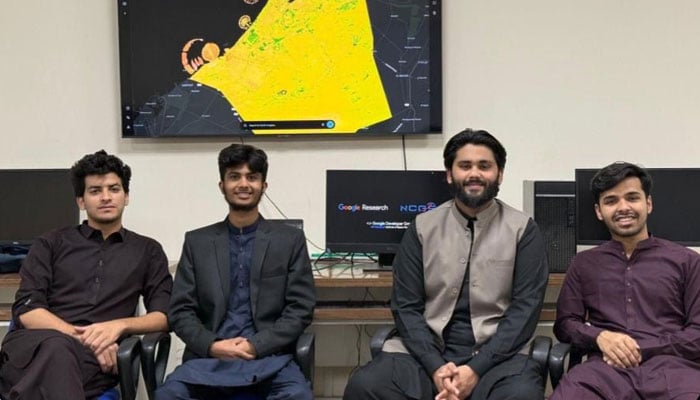
This access to robust cloud computing resources proved invaluable for the Pakistani team.
Immense potential
GeoGemma functions as a simplified spatial analysis tool, capable of fetching and interpreting satellite data by understanding natural language commands.
Remarkably, the model itself is less than 2GB in size, allowing it to be loaded and run on any standard laptop without the need for external servers.
The team believes GeoGemma holds immense potential across a multitude of industries where satellite imagery and remote sensing are crucial, including sustainability, oil and gas exploration, real estate development, and supply chain management among others.
With their recent award and recognition, the team is now focused on releasing their software before the end of this year. They envision future partnerships and the development of custom, proprietary modules to further expand GeoGemma's reach and impact.




